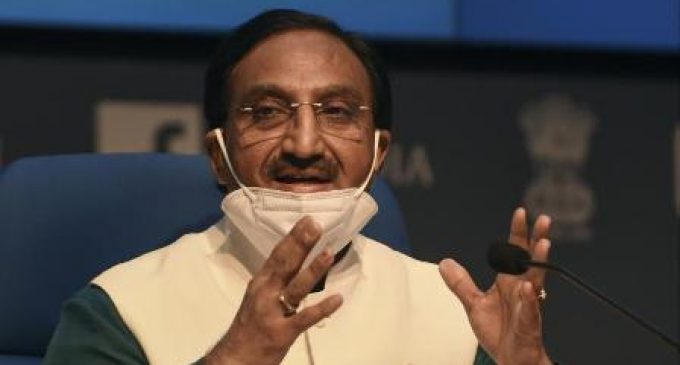National Education Policy: Study in home language till Class 5 and other takeaways

Union Education Minister Ramesh Pokhriyal on Wednesday unveiled the National Education Policy, 2020.
Addressing a press conference, Pokhriyal, along with his predecessor and now I&B minister Prakash Javadekar, unveiled the policy, which will replace the existing policy that was formulated in 1986 under the Rajiv Gandhi government.
“The Cabinet under Prime Minister Narendra Modi has given approval to a new education policy for the 21st century. It is important, as for 34 years there were no changes in the education policy,” Javadekar was quoted as saying.
First and foremost, the government has renamed the Ministry of HRD as Ministry of Education — as it was called before September 1985.
School education
The Union ministers announced that the medium of instruction in schools until Class 5, or preferably Class 8, will be either in home language, mother tongue or regional language.
Moreover, school curriculum will be reduced to core concepts and vocational education will be made a key part of school education from Class 6 under the new National Education Policy. Under the new policy, school education will not see a rigid separation between vocational and academic fields, curricular and extracurricular activities, and arts and science subjects.
Board exams, a.k.a. Class 10th and 12th exams, will now be based on application of knowledge, eliminating the need for rote learning. In a major push towards focusing on developing the skills and capabilities of a student, the school education is all set to focus on integrating 21st century skills and mathematical thinking.
By 21st century skills, many experts mean subjects like emotional intelligence, problem solving, critical thinking and creative thinking. School report cards will be a comprehensive report on skills and capabilities instead of just marks and statements, the government said.
Higher Education
All higher education institutions, except legal and medical colleges, to be governed by a single regulator, the government revealed.
In a bid to create a more level-playing field, common norms will be put in place for private and public higher education institutions, they added. Moreover, the Centre will be implementing a common entrance exam for admission to universities and higher education institutions across India.
Integrated five year bachelor-masters’ courses will be a prominent feature once the policy is implemented while MPhil courses, whose relevance has come under the scanner off late, will be discontinued.
In addition, the policy will now focus on a more holistic and multidisciplinary approach towards education and is likely to allow students flexibility in choosing subjects in undergraduate and post-graduate education.
Push towards e-technology
The New Education Policy will specifically emphasize e-learning, an issue which has bothered the education system amid the ongoing coronavirus lockdown. To that effect, schools, teachers and students will be made “digital friendly”.
“E-courses will be developed in regional languages. Virtual labs will be developed and a National Educational Technology Forum (NETF) is being created,” the government said.
Under the new policy, planning, administration and management of the education system will be enabled through the use of technology. Not just teaching and assessment of students but also regulation of education will be e-technology enabled. Giving further impetus to regional language teaching, e-content will be made available in local languages.
-The Asian Age






